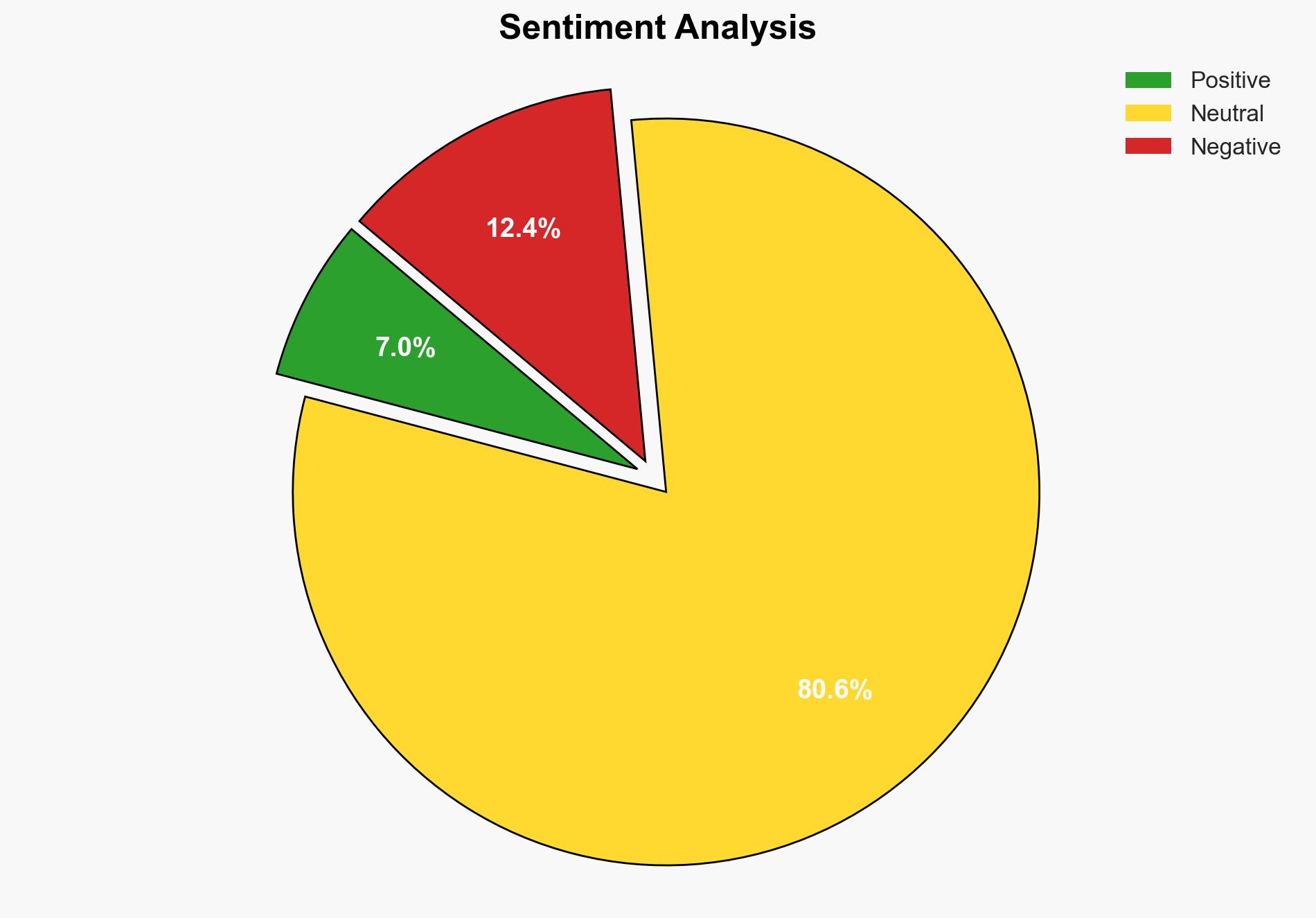Most of the worlds population is breathing dirty air Report – Al Jazeera English
Published on: 2025-03-11
Intelligence Report: Most of the World’s Population is Breathing Dirty Air – Al Jazeera English
1. BLUF (Bottom Line Up Front)
A recent report by IQAir reveals that a significant portion of the global population is exposed to polluted air, with Chad, Bangladesh, Pakistan, India, and the Democratic Republic of the Congo identified as having the most polluted air. The report highlights a critical gap in air quality monitoring, particularly in developing regions, exacerbated by the cessation of data collection by certain government entities. This situation poses severe health risks and necessitates immediate international cooperation and technological investment to improve air quality monitoring and management.
2. Detailed Analysis
The following structured analytic techniques have been applied for this analysis:
General Analysis
The IQAir study underscores the pervasive issue of air pollution affecting global health. Countries like Chad and Bangladesh exhibit smog levels significantly exceeding World Health Organization guidelines. The report identifies natural factors such as Sahara dust and human activities like uncontrolled crop burning as key contributors. The discontinuation of air quality data collection by certain government departments further complicates the situation, particularly in Africa, where monitoring infrastructure is sparse.
3. Implications and Strategic Risks
The lack of comprehensive air quality data poses significant risks to public health, economic stability, and regional security. Poor air quality can lead to increased healthcare costs, reduced workforce productivity, and heightened mortality rates. The absence of reliable data impedes effective policy-making and international cooperation, potentially exacerbating regional tensions and hindering sustainable development efforts.
4. Recommendations and Outlook
Recommendations:
- Enhance international collaboration to establish and maintain air quality monitoring networks, particularly in under-monitored regions.
- Invest in advanced air quality sensors and data analytics to provide real-time monitoring and forecasting capabilities.
- Encourage regulatory frameworks that promote clean energy adoption and stricter emissions controls.
Outlook:
Best-case scenario: Global cooperation leads to improved air quality monitoring and significant reductions in pollution levels, enhancing public health and economic outcomes.
Worst-case scenario: Continued data gaps and inadequate policy responses result in worsening air quality, increasing health crises, and economic burdens.
Most likely outcome: Incremental improvements in monitoring and policy implementation, with gradual progress in reducing pollution levels.
5. Key Individuals and Entities
The report references Christi Chester Schroeder and Christa Hasenkopf as significant contributors to the analysis of air quality issues. Their insights emphasize the critical need for reliable data and international collaboration to address the growing air pollution crisis.





